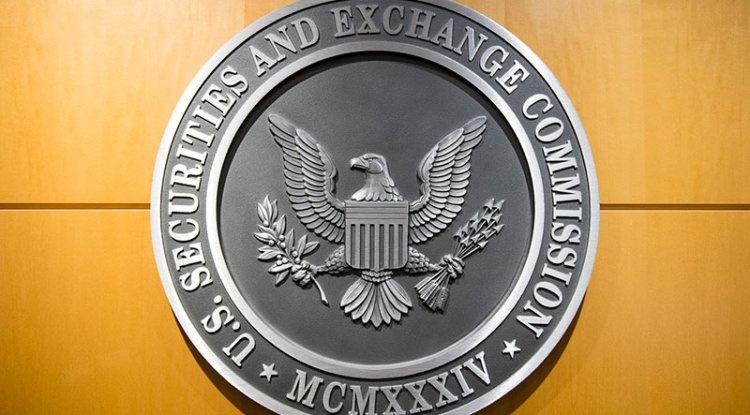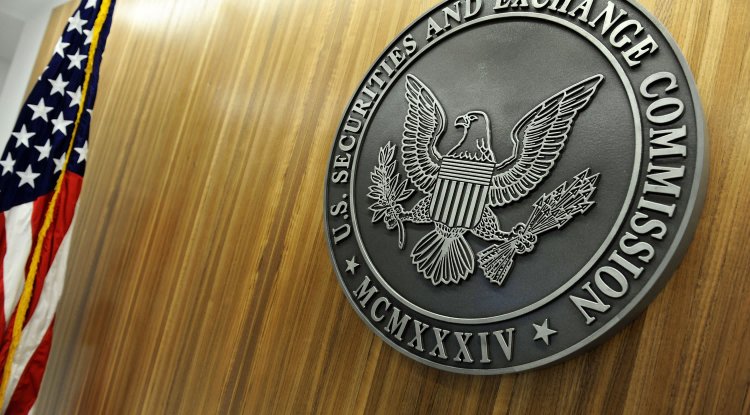AMC FTDs have now totaled $60,000,000 in July
According to investorturf's most recent report, the month of July witnessed a sharp increase in AMC FTDs totaling more than $60,000,000.

- Failure to deliver occurs when one of the parties in a stock transaction fails to deliver their portion.
- For the buyer, this is cash; for the seller, it is stock.
- One cause of failure to deliver is naked short selling, but there are many others.
-
Many failures to deliver are resolved within a few trading days.
In the financial market, "Failure to Deliver" (FTD) refers to a situation where a seller fails to deliver securities to a buyer within the specified time frame. This can occur for various reasons, such as a lack of available shares, processing errors, or deliberate market manipulation. Recently, Investorturf, report reveals a substantial spike in AMC FTDs during July. The report has sent shockwaves across the investment community, showing a massive amount of over $60,000,000 in unsettled trades.
As of now, July's complete report is still being updated. However, based on the available data, we can observe that the month saw an average of 12 million AMC FTDs (Failure to Deliver) per day.
AMC fails-to-deliver reached a record high on Tuesday, July 11th, reaching $60,019,142, or roughly 14,155,458 FTDs in total.
| 2023-07-14 | 10,997,717 | 4.44 | 2023-07-12 | 2023-08-16 | 48,829,863 | -1,687,995 |
| 2023-07-13 | 12,685,712 | 4.40 | 2023-07-11 | 2023-08-15 | 55,817,133 | -359,549 |
| 2023-07-12 | 13,045,261 | 4.39 | 2023-07-10 | 2023-08-14 | 57,268,696 | -1,110,197 |
| 2023-07-11 | 14,155,458 | 4.24 | 2023-07-07 | 2023-08-11 | 60,019,142 | +2,510,448 |
| 2023-07-10 | 11,645,010 | 4.20 | 2023-07-06 | 2023-08-10 | 48,909,042 | -1,088,709 |
| 2023-07-07 | 12,733,719 | 4.29 | 2023-07-05 | 2023-08-09 | 54,627,655 | +256,674 |
| 2023-07-06 | 12,477,045 | 4.25 | 2023-07-03 | 2023-08-07 | 53,027,441 | -2,126,953 |
| 2023-07-05 | 14,603,998 | 4.44 | 2023-06-30 | 2023-08-04 | 64,841,751 | +2,026,923 |
| 2023-07-03 | 12,577,075 | 4.40 | 2023-06-29 | 2023-08-03 | 55,339,130 | -411,232 |
| 2023-06-30 | 12,988,307 | 4.42 | 2023-06-28 | 2023-08-02 | 57,408,317 | +1,090,331 |
| 2023-06-29 | 11,897,976 | 4.41 | 2023-06-27 | 2023-08-01 | 52,470,074 | -789,729 |
| 2023-06-28 | 12,687,705 | 4.10 | 2023-06-26 | 2023-07-31 | 52,019,591 | +63,731 |
| 2023-06-27 | 12,623,974 | 4.03 | 2023-06-23 | 2023-07-28 | 50,874,615 | +3,827,719 |
| 2023-06-26 | 8,796,255 | 4.01 | 2023-06-22 | 2023-07-27 | 35,272,983 | +3,178,264 |
| 2023-06-23 | 5,617,991 | 4.17 | 2023-06-21 | 2023-07-26 | 23,427,022 | +645,969 |
| 2023-06-22 | 4,972,022 | 4.53 | 2023-06-20 | 2023-07-25 | 22,523,260 | -928,654 |
| 2023-06-21 | 5,900,676 | 4.59 | 2023-06-16 | 2023-07-21 | 27,084,103 | +2,992,144 |
| 2023-06-20 | 2,908,532 | 4.70 | 2023-06-15 | 2023-07-20 | 13,670,100 | -192,491 |
| 2023-06-16 | 3,101,023 | 4.76 | 2023-06-14 | 2023-07-19 | 14,760,869 | +529,062 |
| 2023-06-15 | 2,571,961 | 4.90 | 2023-06-13 | 2023-07-18 | 12,602,609 | -542,054 |
| 2023-06-14 | 3,114,015 | 5.00 | 2023-06-12 | 2023-07-17 | 15,570,075 | -91,905 |
| 2023-06-13 | 3,205,920 | 4.79 | 2023-06-09 | 2023-07-14 | 15,356,357 | -44,136 |
| 2023-06-12 | 3,250,056 | 4.77 | 2023-06-08 | 2023-07-13 | 15,502,767 | -242,026 |
| 2023-06-09 | 3,492,082 | 4.68 | 2023-06-07 | 2023-07-12 | 16,342,944 | +1,761,936 |
| 2023-06-08 | 1,730,146 | 4.73 | 2023-06-06 | 2023-07-11 | 8,183,591 | +49,883 |
| 2023-06-07 | 1,680,263 | 4.64 | 2023-06-05 | 2023-07-10 | 7,796,420 | +503,589 |
| 2023-06-06 | 1,176,674 | 4.63 | 2023-06-02 | 2023-07-07 | 5,448,001 | +689,595 |
| 2023-06-05 | 487,079 | 4.55 | 2023-06-01 | 2023-07-06 | 2,216,209 | -210,175 |
| 2023-06-02 | 697,254 | 4.55 | 2023-05-31 | 2023-07-05 | 3,172,506 | +692,294 |
| 2023-06-01 | 4,960 | 4.50 | 2023-05-30 | 2023-07-04 | 22,320 | -15,034 |
| 2023-05-31 | 19,994 | 4.63 | 2023-05-26 | 2023-06-30 | 92,572 | -51,297 |
| 2023-05-30 | 71,291 | 4.64 | 2023-05-25 | 2023-06-29 | 330,790 | -233,869 |
| 2023-05-26 | 305,160 | 4.70 | 2023-05-24 | 2023-06-28 | 1,434,252 | +225,179 |
| 2023-05-25 | 79,981 | 4.88 | 2023-05-23 | 2023-06-27 | 390,307 | +71,571 |
| 2023-05-24 | 8,410 | 5.03 | 2023-05-22 | 2023-06-26 | 42,302 | -225,651 |
| 2023-05-23 | 234,061 | 5.12 | 2023-05-19 | 2023-06-23 | 1,198,392 | +229,015 |
| 2023-05-22 | 5,046 | 5.03 | 2023-05-18 | 2023-06-22 | 25,381 | -1,088 |
| 2023-05-19 | 6,134 | 5.07 | 2023-05-17 | 2023-06-21 | 31,099 | -7,951 |
| 2023-05-18 | 14,085 | 5.10 | 2023-05-16 | 2023-06-20 | 71,834 | -12,326 |
| 2023-05-17 | 26,411 | 4.96 | 2023-05-15 | 2023-06-19 | 130,999 | +16,101 |
| Settlement Date (T+2Bd) | Fails-to-Deliver | Prev. Price | Trade Date (T) | Close Out Date (T+35Cd) | Notional $ | FTD Change |
|---|
Two of the main reasons for failures to deliver include naked short sales and asset sales made without first borrowing the money to pay for them.
Failure to Deliver (FTD) refers to the failure of a party in a trading agreement, whether it involves forward contracts, shares, options, or futures, to fulfill their commitments. This often occurs when a buyer lacks the necessary funds to accept delivery and complete the transaction at settlement.
FTD is especially significant in the context of naked short selling, where a person attempts to sell a stock they or their affiliated broker do not possess and cannot demonstrate the ability to access such stocks.
Performing a naked short sell requires specialized knowledge and is not recommended for the average trader. However, proprietary traders working for trading firms and risking their own capital may be eligible to do so legally, though it is still an unlawful practice. Certain entities and individuals may see an opportunity to profit without accountability if they believe the shorting organization will face bankruptcy.
Understanding the implications of failure to deliver is vital for navigating the complexities of the financial markets and avoiding unlawful practices.
In trading, both parties are contractually obligated to transfer assets or money before the settlement date. As a result, if the transaction is not completed within a certain time frame, one party is deemed to have failed to deliver. It may also occur if a technical problem with the clearing house's settlement process occurs.
A clearinghouse is an established intermediary between sellers and buyers in the financial market. Its primary responsibility is to verify and finalize transactions, ensuring that both parties contractual obligations are met. Each financial market has a designated clearinghouse or an internal clearing division that handles this function.
Companies typically have one to three days after a trade is executed to complete the payment process, depending on the market. Securities and cash must be delivered to the clearinghouse for settlement within this timeframe. Failure to meet this deadline results in the failure of the settlement. It's important to note that different types of financial instruments have different settlement requirements, such as fixed-income securities, options, stocks, and futures contracts.
Is AMC Entertainment Facing Naked Shorting?
FTDs can indicate a high level of short interest, which could indicate a bearish sentiment toward a specific stock. Furthermore, excessive FTDs can lead to market manipulation, increasing volatility and potential risks for investors. FTD data tracking is critical for understanding market trends and assessing potential risks.
Also Read: Citi closes downside catalyst watch call on AMC
All indications point to naked shorting in AMC Entertainment stock; however, AMC CEO Adam Aron appears to disagree.

Adam Aron, CEO of AMC Entertainment Holdings Inc.
CEO's Statement: Adam Aron has previously stated that he found no evidence of manipulation or 'synthetic shares' in the market.
April Announcement: In a significant announcement during April, AMC CEO Adam Aron revealed that the company took proactive steps to address concerns surrounding its stock trading. By reaching out to both FINRA and the NYSE, they sought a thorough examination of the trading activities, especially in response to the high number of FTDs (Fail to Deliver). However, updates on this matter have not been shared with shareholders since then.
Recent Tweet: Adding to the discussion, Adam Aron took to Twitter to address the ongoing concerns regarding the failure to deliver AMC shares. Acknowledging the frustration among shareholders about the substantial number of "Fail to Deliver" instances and AMC's repeated inclusion in the Threshold List for multiple weeks, he assured investors of the company's continued proactive stance. AMC has consistently engaged with the NYSE and FINRA, including a recent interaction in July, to keep them informed about and vigilant towards the situation.
Many of you are incensed by the high number of "Fail to Deliver" AMC shares, and that AMC again has been on the Threshold List for multiple weeks. We repeatedly have gone to the NYSE and FINRA, and did so again in July, to put and keep this entire situation on their radar. — Adam Aron (@CEOAdam) August 2, 2023
What's Your Reaction?







-
 Chris BoschettiYour article had potential but fell short...you didn't address what rules the regulating bodies are supposed to enforce and address why this is not happening!!3 years ago Reply
Chris BoschettiYour article had potential but fell short...you didn't address what rules the regulating bodies are supposed to enforce and address why this is not happening!!3 years ago Reply -
 Paula ChesserOnly the SEC has the authority to address FTDs. They are apathetic to AMC.3 years ago Reply
Paula ChesserOnly the SEC has the authority to address FTDs. They are apathetic to AMC.3 years ago Reply














